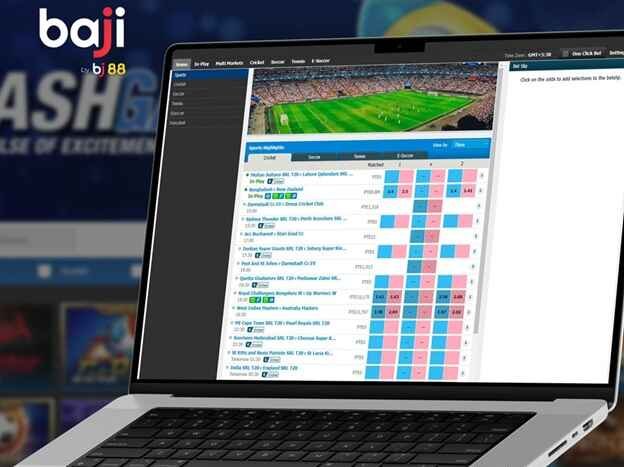An essential part of contemporary corporate operations is contract management. Strong, effective, and intelligent contract management technologies are essential as businesses expand and become more complicated. Selecting the appropriate platform may improve operational efficiency, lower risks, and change how companies manage their legal agreements. This article will take you through some important factors that will help you choose a contract management platform that best suits the particular requirements of your company.
1. Assess Your Specific Business Requirements
The first step in choosing the best platform is to comprehend the unique contract management requirements of your company. Every company has different operational issues, procedures, and compliance needs, necessitating a customized strategy. Start by thoroughly reviewing your present contract management procedures internally. Point out issues like manual data input, a lack of visibility, ineffective approval processes, or trouble keeping track of compliance. Take into account the number of contracts your company oversees, the intricacy of your contracts, and the many departments that are engaged in the contract lifecycle. Involve stakeholders from the finance, sales, procurement, and legal departments to obtain thorough understanding of their unique needs and difficulties.
2. Evaluate Scalability and Flexibility
A contract management platform has to be more than a static solution in the fast-paced corporate world of today. Two important elements that affect the platform’s long-term worth are scalability and adaptability. Seek for solutions that can develop and change with your company to meet the needs of growing teams, changing organizational structures, and rising contract volumes. Think about systems with modular designs, which let you add or modify features as your requirements evolve. Examine the platform’s capacity to accommodate various contract kinds, offer flexible procedures, and interact with current systems.
3. Prioritize User Experience and Intuitive Design
If consumers find the most sophisticated contract management systems confusing or hard to use, it will not work. In order to guarantee broad acceptance and optimize the platform’s potential, user experience (UX) and intuitive design are crucial. Seek out solutions with simple, contemporary interfaces that need less onboarding training. Think of systems with drag-and-drop capabilities, intuitive navigation, and aesthetically pleasing dashboards that deliver quick information. An optimal platform should lessen cognitive burden, simplify intricate procedures, and transform contract administration from a tedious task to a competitive advantage. As team members want access to contract information on a variety of devices, pay attention to mobile responsiveness.
4. Ensure Robust Security and Compliance Features
When choosing a contract management software, security must be an afterthought in a world of growing cybersecurity risks and data privacy rules. It is impossible to compromise on strong security and compliance features. Assess possible platforms according to their data encryption standards, access control systems, security certifications, and adherence to industry-specific laws. Look for features like secure document storage, thorough audit trails, customizable user rights, and multi-factor authentication. Platforms that provide version control should be taken into consideration, since they guarantee that all contract updates are monitored and accessible.
5. Consider Advanced Search and Analytics Capabilities
Document storage should not be the exclusive function of contemporary contract management systems. Contracts are transformed from static files into strategic assets via sophisticated search and analytics capabilities. Seek out systems with sophisticated search features that let users find certain phrases, clauses, or documents in the whole contract repository with ease. Actionable insights including contract performance indicators, renewal projections, possible risk areas, as well as compliance monitoring should be offered via strong analytics solutions. Take into account functions like natural language processing, which may automatically extract important information, saving time and lowering the mistakes associated with human data entry. By providing intricate contract information in easily comprehensible formats, the ideal platform should facilitate data-driven decision-making.
6. Assess Integration Capabilities
A contract management software needs to be effortlessly integrated into your current technological environment rather than being in a vacuum. Assess possible platforms according to how well they integrate with other important company systems, including financial management tools, ERP, CRM, and procurement. Data silos are removed, laborious data transmission is decreased, and departmental workflows become more unified through seamless interfaces. Seek out platforms that give strong API features that enable bespoke integrations or pre-built connections to well-known corporate apps. As your technological stack develops, take into account the degree of data synchronization, the simplicity of implementation, and the possibility of future integrations.
7. Understand Pricing and Total Cost of Ownership
Although price shouldn’t be the only consideration, it is essential to comprehend the pricing structure and total cost of ownership. Examine the full financial ramifications in addition to the initial subscription cost. Examine pricing approaches, such as contract volume-based pricing, feature-based price tiers, and per-user licensing. Take into account the price of implementation, possible modification charges, continuing maintenance fees, and necessary training. Certain systems may have appealing starting prices, but may charge more for more complex features or integrations. By weighing the platform’s time savings, risk reduction capabilities, and efficiency improvements against the overall implementation and operating expenses, you may determine the possible return on investment.
8. Evaluate Vendor Reputation and Support
Just as crucial as the platform’s technical capabilities are the platform vendor’s standing and support system. Examine the vendor’s performance history, client endorsements, and standing in the market. Seek out suppliers who have a track record of innovation, regular product upgrades, and a well-defined development strategy. Evaluate the level of customer service, taking into account response times, channels of help, training materials, and continuous customer success initiatives. Take into account elements such as the vendor’s track record of success, clientele within your sector, and dedication to ongoing development. Your contract management experience may be much improved and strategic advice can be obtained from a responsive and trustworthy vendor.
Conclusion
The effectiveness, risk management, and competitive edge of your company may all be greatly impacted by your strategic choice of top procurement software. By carefully assessing platforms along these important aspects, you can make an educated decision that supports your company’s objectives. Keep in mind that selecting the ideal platform involves finding a flexible, intelligent system that can be customized to meet your specific organizational demands rather than trying to locate a one-size-fits-all solution.




